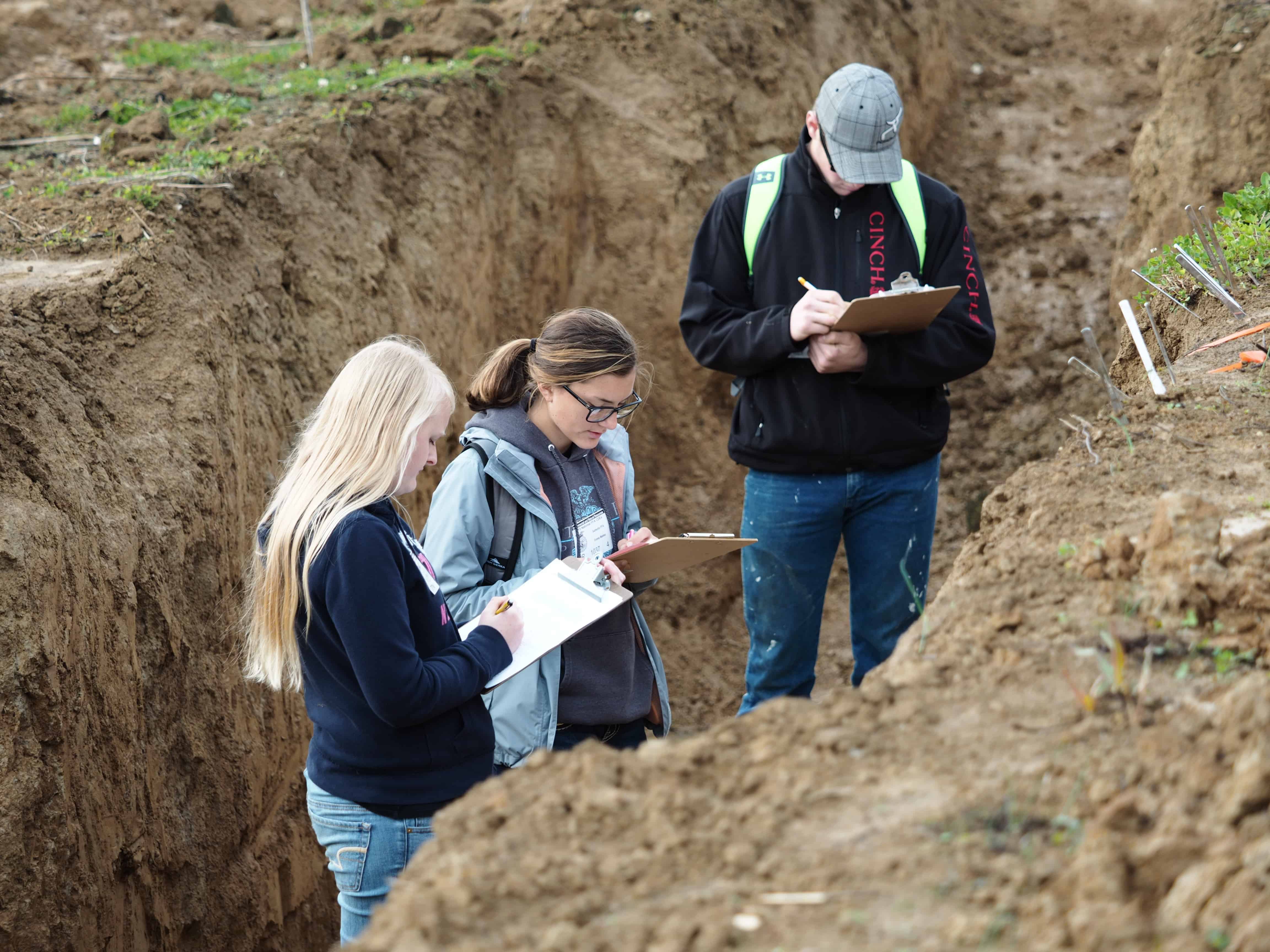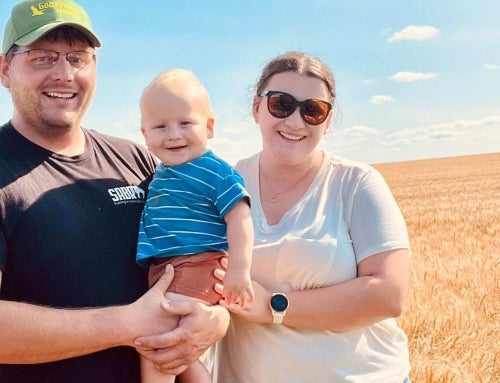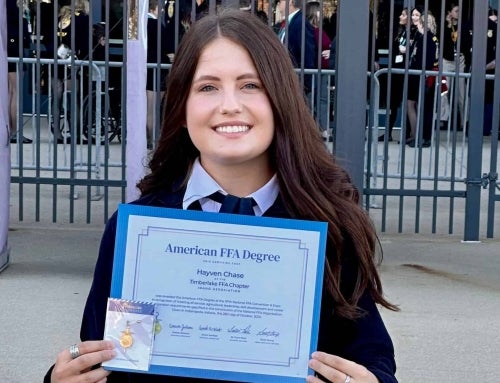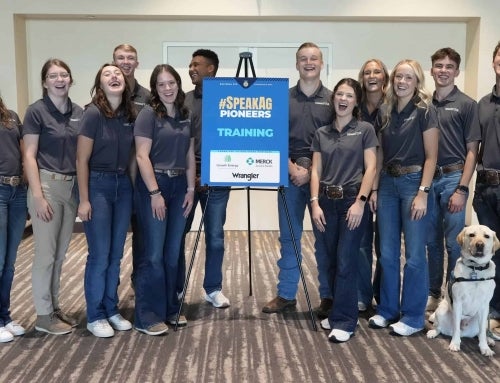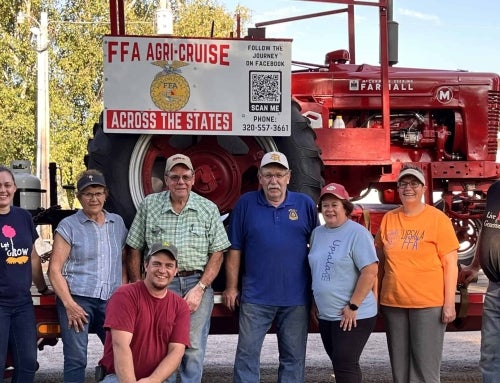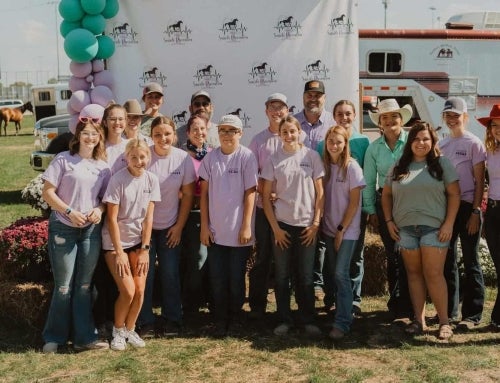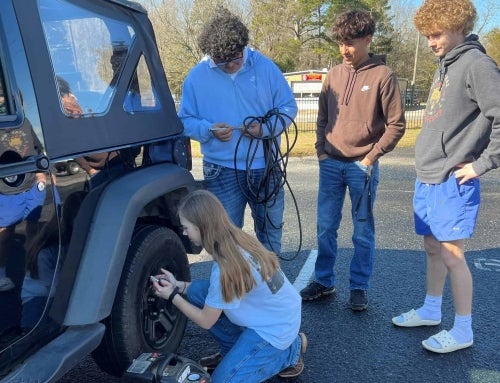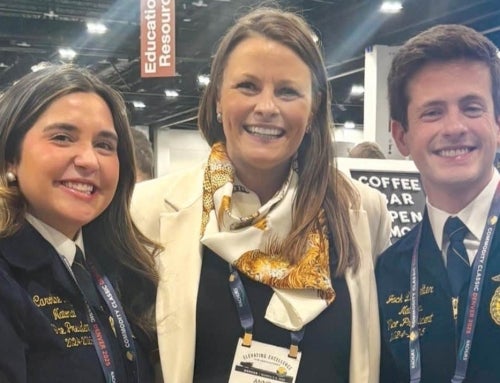Turns out that the next generation of agriculture leaders are just as likely to be tomorrow’s top tech-savvy experts as well, and Microsoft Corporation has taken notice of the potential symbiotic success.
In a commitment to the future of agriculture, the National FFA Organization brings innovative technology, science and research to the classrooms of its nearly 670,000 members through the new FFA Blue 365 initiative. Now Microsoft has partnered with FFA through a pilot project called FarmBeats to help tackle the world’s food problem.
Microsoft’s Principal Researcher Ranveer Chandra developed FarmBeats in 2014 to empower farmers with an affordable end-to-end IoT platform for data-driven agriculture to boost farmers’ productivity by increasing yields and reducing losses, as they acquire more sustainable agricultural practices.
And now Chandra has expanded his vision beyond today’s farmers — to those who’ll be tilling the fields, monitoring the crops and analyzing the data in the years to come.
Enter the teens of FFA.
For them, Microsoft developed FarmBeats Student Kits so they can experience data-driven agriculture. Each kit includes preconfigured Microsoft Azure cloud services, a Raspberry Pi, along with sensors to collect data on soil moisture, light, and ambient temperature. The kits’ data will enable students to monitor and test their crops to improve productivity and save resources — and increase their critical thinking and ingenuity.
This month, as part of the FFA Blue 365 Challenge, FFA and Microsoft awarded 50 FFA chapters with two FarmBeats Student Kits each. “We want to ensure students are opening their minds to the technology that’s currently available, but that they also know they’re going to be the solution-makers for creating new technologies to solve world problems,” says Christine White, the division director of the FFA programs and events division. “The ability to think critically and make data-driven decisions and then apply them to real-world solutions are transferable skills students will use regardless of their eventual place in the workforce—whether going into a manufacturing position or a laboratory setting.”
From the challenge’s submissions, it is apparent FFA chapters are already integrating computer coding and other high-tech applications into their curriculum. FFA members are using drones, probes, Farmbot, and other forms of technology to assist with their applied learning activities.
Wes Crawford from Sutherlin FFA in Oregon says, “Many of our students have a strong interest in agriculture, food security, and sustainability, but are suburban students. This technology will connect those students with those who are more production-focused, and allow them to explore other areas of interest.”
“Technology is shaping agriculture in several ways now, and it is only getting better every progressing day,” Larry Plapp, the advisor of Badger FFA in Wisconsin, said. “I applied for this kit because of a student who presented his supervised agricultural experience using a processor called a Raspberry Pi that watered plants. I had never heard of a Raspberry Pi until this semester. My student developed something very similar to what this kit does. He demonstrated how this small computer was able to turn off and change water flow rates to water a plant automatically. This got me thinking even more about the potential on a larger scale.”
To learn more about FFA Blue 365, visit FFA.org/blue365.

